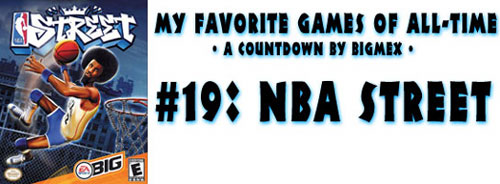
NBA Street meets just about all of the criteria in my definition of a great game. It is the self-contained, boiled-down basketball experience. Don't confuse the popularity of the NBA with the actual game of basketball.
Playground basketball is possibly the last pure form of sport that I know of. Yes companies like AND1 have built their rep by taking playground tricks into large arenas. The game itself is best enjoyed on the playground, free from sponsorships and advertising. The playground where the real legends play day in and day out for the love of the game.

NBA Street was the first basketball game in a long time to capture the fun and creative freedom of basketball. It was arcade in almost every sense of the word. Plays, tricks and dunks were exaggerated but believable. If a character didn't have a high enough "handle" rating they could easily lose the basketball if trying to do a fancy trick move. This gave the fictional and real players in the game a sense of balance.
The control scheme was easy to pick up and get used to. Within a few minutes you could begin pulling off crazy tricks like it was second nature. Not unlike the other great combination-building trick system in Tony Hawk's Pro Skater. NBA Street rewarded players that figured out how to string together long trick chains ending in a monstrous dunk. The sense of realism, the "attitude" that the industry is always trying to create felt genuine in this game.
NBA Street is a nod to the playground game and the legends that never made it into the league. While there are some big NBA names in the game, the biggest personality was the fictional main character, the afro-sporting "Stretch" Monroe. Stretch is based on the NYC playground legends of the 60's and 70's. Many consider those decades the golden years of playground basketball. The days where the best in the NBA would actually show and prove in the playgrounds every summer, instead of retreating to their palatial estates in the Hamptons. The other fictional characters in the game are based around modern players or, like Japanese center Takashi, foreign players that were never given a chance to enter the NBA.
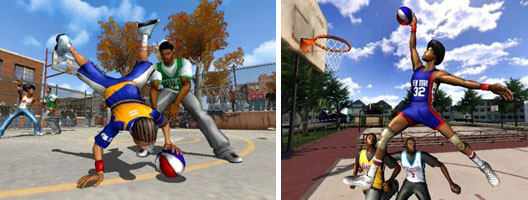
The fictional legends that gave the original game so much personality now seemed out of place. Stretch served little purpose as his template, the retro afro-sporting Julius "Dr. J" Erving was also a playable character. To add insult to injury EA also began using relatively unknown playground players as the templates for fictional characters and unfairly compensating them for their motion-capture sessions, likeness and moves. EA Sports Big have built enough revenue for the company that they began exploring other licenses to make Street games around.
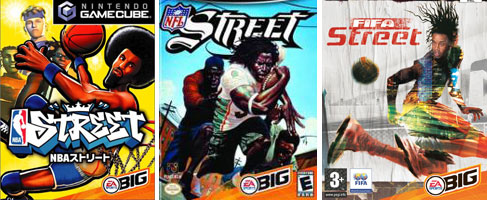
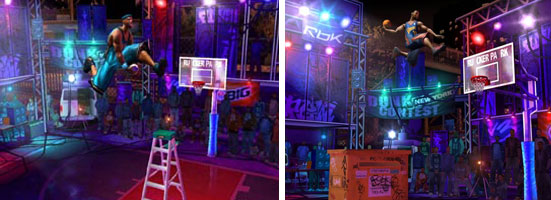
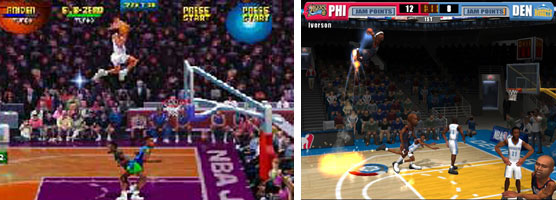
To read more on the bigger picture of streetball, where it's been and where it's going check out my 4-part series from ages ago. Part 1 | Part 2 | Part 3 | Part 4. EDIT: I am trying to see if I have saved this series so I can repost it.
I’d like to hear your personal top-10, top-20, top fighting games, top sports games, or top games in any genre. Let me know in the comments section please. As always if you would like to sponsor me please visit my Patreon page and consider donating each month, even as little as $1 would help make better blogs and even podcasts!
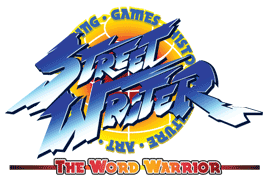
No comments:
Post a Comment